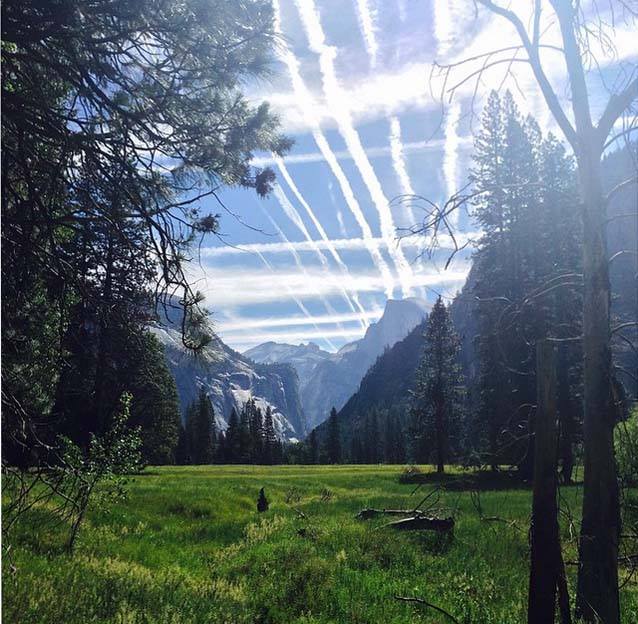A world renowned climatologist warned against the unintended consequences of geoengineering, “massive technological interventions with a system we don’t understand … and certainly health impacts are among those potential consequences.”
Professor Michael Mann was at the Commonwealth Club to accept the Schnieder Award for outstanding Climate Science Communication January 16, 2018 when I asked him whether he had considered the human health impacts of the geoengineering proposals.
This was his reply:
“There are a range of schemes that have been proposed which range from shooting particles into the stratosphere to block out some of the sunlight and try to cool the Earth back down. When you look at some of the potential side effects of that, the unintended consequences, it turns out that sort of scheme could actually end up leading to a drying out of the continents, you could cause some areas to actually warm even faster because of changing atmospheric circulation patterns, you would probably worsen acid rain and ozone depletion and as you go down the list with most of these proposed interventions – you know the principle of unintended consequences really reigns supreme – and certainly health impacts are among those potential consequences.”
Prof Mann’s book “The Madhouse Effect” is available on Amazon and elsewhere.
You can hear the full presentation on the Climate One podcast. My question starts at the 40:26 mark.
TRANSCRIPT
PATRICK RODDIE – Hi, my name is Patrick Roddie from StopSprayingUs.com. I was reading chapter seven of your book on geoengineering – which is a very bad idea to resolve the climate crisis. Have you looked at all into the potential human health impacts, because since I understand it has actually been deployed since the 80s and since then Alzheimers has risen 135 fold, so have you any views on whether it has been deployed and your views on the human health impacts?
GREG DALTON: Michael Mann, please explain what geoengineering is.
MICHAEL MANN: Yes, so geoengineering is the intentional manipulation of essentially the global environment and one might argue that climate change is sort of the unintentional massive global scale manipulation of our environment, it’s an accidental geoengineering. The title of that chapter in our book, by the way is “Geoengineering – or “What could possibly go wrong’” and I think that perhaps betrays my views in general about prospects for massive technological interventions with a system we don’t understand perfectly. There are a range of schemes that have been proposed which range from shooting particles into the stratosphere to block out some of the sunlight and try to cool the Earth back down. When you look at some of the potential side effects of that, the unintended consequences, it turns out that sort of scheme could actually end up leading to a drying out of the continents, you could cause some areas to actually warm even faster because of changing atmospheric circulation patterns, you would probably worsen acid rain and ozone depletion and as you go down the list with most of these proposed interventions – you know the principle of unintended consequences really reigns supreme – and certainly health impacts are among those potential consequences. For example, the idea that we could fertilize the oceans by putting iron into the oceans, fertilizing algae which would take more of the CO2 out of the atmosphere, well as those schemes have been studied more closely it turns out first of all that it would probably just lead to faster cycling of carbon in the upper ocean, it wouldn’t take carbon out of the system and it appears that it might actually favor the type of algae which give rise to red tides. So there are potential health consequences, again it’s the principle of unintended consequences, interfering with a system we don’t understand perfectly – and there is no planet B. There is only one planet we know of in the universe right now that can support life.
JONATHAN FOLEY: Sorry, also to add a quick comment, the warming we’re seeing is mostly happening at night, often in the poles and in colder seasons more or less, so if that’s true then blocking the sun to cool it off is not going to work. It will cool off the daytime in the tropics in the summers and it’s like sticking your feet in liquid nitrogen because your hair’s on fire.

